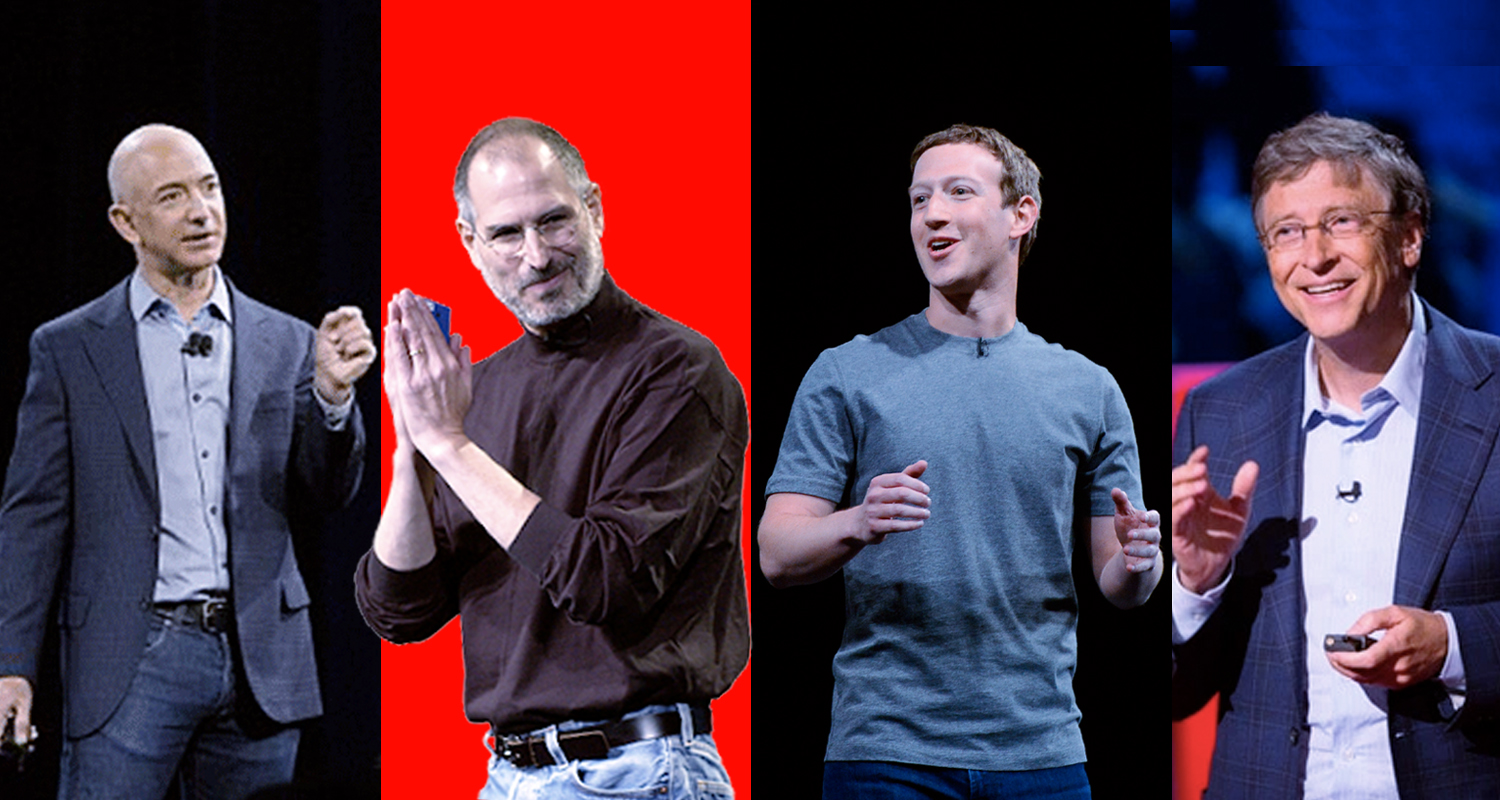The role of businessmen (or entrepreneurs and business leaders) in the technology sector is pivotal, as they drive innovation, shape markets, and determine how new technologies are applied across industries. Many of the world’s most influential business leaders today are in the tech space, and their decisions influence the course of global economic and technological trends.
ALSO READ :- https://virenbrew.com/nvidia-surpasses-3-6-trillion-market-value-after-trumps-win/
Here are some key ways businessmen are involved in technology:
1. Technology Entrepreneurs

- Creating New Technologies: Entrepreneurs often lead the charge in developing groundbreaking technologies. They identify unmet needs or inefficiencies in the market and create solutions. For example, Elon Musk (Tesla, SpaceX) revolutionized the electric vehicle and space industries, while Jeff Bezos (Amazon) transformed global e-commerce and cloud computing.
- Examples of Tech Entrepreneurs:
- Bill Gates (Microsoft)
- Steve Jobs (Apple)
- Larry Page and Sergey Brin (Google)
- Mark Zuckerberg (Facebook/Meta)
- Jack Ma (Alibaba)
2. Technology Investing
- Venture Capital (VC) & Private Equity: Businessmen and investors in the tech sector, particularly venture capitalists, fund startups that bring innovative ideas to market. VCs provide early-stage funding to promising tech startups, helping them scale and develop products.
- Tech Investment Firms: Firms like Sequoia Capital, Andreessen Horowitz, and Benchmark are major players in tech investing, funding companies in fields ranging from AI to cloud computing.
- Angel Investors: These businessmen invest their personal wealth into promising tech startups in exchange for equity. Successful angel investors often come from tech backgrounds and use their knowledge and networks to help businesses grow.
3. Tech Companies & Innovation

- Corporate Leadership: Business leaders at major technology companies drive innovation and expansion. CEOs, CTOs, and other executives set the strategic direction for these companies, often determining what technological breakthroughs will be pursued and how they will be integrated into the business.
- Example Companies:
- Microsoft: Satya Nadella has led the company through a major cloud computing transformation.
- Apple: Tim Cook, following Steve Jobs, has pushed Apple toward services and wearables while continuing innovation in hardware.
- Amazon: Andy Jassy, after taking over from Jeff Bezos, continues Amazon’s dominance in cloud computing through AWS, e-commerce, and logistics.
- Tesla: Elon Musk continues to innovate not just in electric vehicles but also in autonomous driving, energy storage, and space exploration.
4. Disrupting Traditional Industries
- Businessmen in Tech are Often Disruptors: Many of the biggest names in tech have disrupted traditional industries. For instance:
- Uber and Lyft disrupted the traditional taxi industry by using mobile apps to connect passengers with drivers.
- Airbnb disrupted the hospitality industry by enabling individuals to rent out their homes or rooms.
- Netflix disrupted the entertainment industry by moving from DVD rentals to streaming services, changing how people consume content.
- Businessmen with a deep understanding of technology are able to spot inefficiencies and figure out how to leverage tech to solve problems in unexpected ways.
5. Tech Leadership in Established Companies
- Innovation within Large Corporations: Tech executives and businessmen in established corporations often drive the digital transformation of legacy industries. This includes integrating new technologies like AI, machine learning, and big data into traditional sectors like banking, manufacturing, and healthcare.
- Examples:
- Jamie Dimon at JPMorgan Chase has been steering the company through significant technological adoption in finance, especially in areas like blockchain and digital payments.
- Mary Barra at General Motors is leading GM’s push toward electric vehicles and autonomous driving.
6. Corporate Social Responsibility (CSR) and Tech
- Many businessmen in the tech sector are also using their wealth and influence for philanthropic and social causes. Companies like Microsoft, Google, and Facebook have created initiatives that focus on digital inclusion, education, and the responsible use of technology.
- Examples:
- Bill Gates: Through the Bill & Melinda Gates Foundation, Gates is tackling global issues such as healthcare, poverty, and education.
- Mark Zuckerberg: The Chan Zuckerberg Initiative focuses on advancing science and education.
7. Adapting to Emerging Trends
- Businessmen in Tech must Stay Ahead of Emerging Trends: To succeed in the tech world, businessmen need to be able to spot emerging trends and position their companies to capitalize on them. Some emerging areas where businessmen are deeply involved include:
- AI and Machine Learning: Entrepreneurs are developing new AI technologies and using AI to transform industries.
- Blockchain & Cryptocurrencies: Business leaders in blockchain are shaping the future of decentralized finance and digital currencies.
- Metaverse & Virtual Reality: Entrepreneurs like Mark Zuckerberg have invested heavily in the metaverse, envisioning a future where virtual worlds and augmented reality become central to social interaction, entertainment, and business.
8. Global Expansion and Market Leadership
- Expanding Markets: Many successful tech businessmen expand their companies globally, driving the spread of technology worldwide. For example, Alibaba and Tencent have expanded well beyond China, becoming major players in e-commerce and entertainment globally.
- Businessmen in tech can also help bridge the digital divide by making technology accessible in underserved markets.
9. Navigating Regulatory Challenges
- Navigating Legal and Ethical Challenges: Tech businessmen must also deal with regulatory issues, privacy concerns, and ethical considerations. As governments and international bodies create new laws around data privacy, AI, and monopolistic behavior, business leaders must adapt to new rules while driving innovation.
- Examples:
- Google and Facebook face ongoing regulatory scrutiny around data privacy and monopolistic practices.
- Elon Musk and Tesla face scrutiny over issues like labor practices and self-driving technology regulations.
ALSO READ :- https://virenbrew.com/space-colonization-concepts-pioneering-the-future-of-humanity/
Key Characteristics of Businessmen in Technology:
- Visionary Thinking: Successful businessmen in tech often have a clear vision of the future and are able to inspire and mobilize resources toward that vision.
- Risk-Taking: Building or investing in technology is risky. Many tech businessmen take calculated risks to bring new ideas to market.
- Adaptability: The tech landscape is constantly evolving. Effective businessmen must be agile, able to pivot strategies, and innovate in response to new challenges and opportunities.
- Global Mindset: Technology often operates on a global scale. Businessmen in the tech space must understand international markets, trends, and regulations to succeed.
Conclusion:
Businessmen in the tech industry are not just investors or leaders of large companies—they are often the driving force behind the development and application of new technologies that shape the world. Whether through entrepreneurship, innovation, investment, or global strategy, they play a critical role in transforming industries, driving economic growth, and shaping the future of technology.
Follow us on INSTAGRAM – https://www.instagram.com/virenbrew/
Follow us on TWITTER (X) – https://x.com/VIRENbrew
Follow us on LINKEDIN – https://linkedin.com/in/viren-brew-230415328/
Follow us on FACEBOOK – https://www.facebook.com/profile.php?id=61565127137999
Follow us on YOUTUBE – https://www.youtube.com/@VIRENbrew

No responses yet